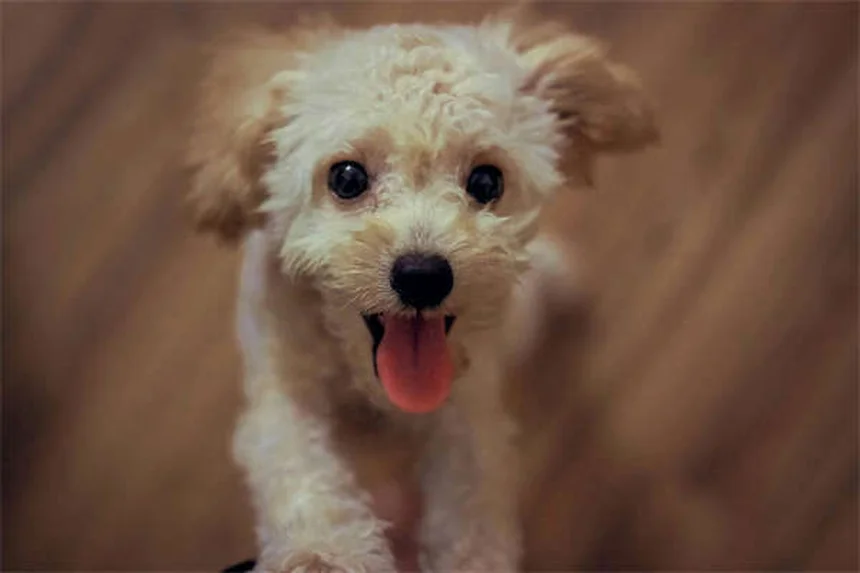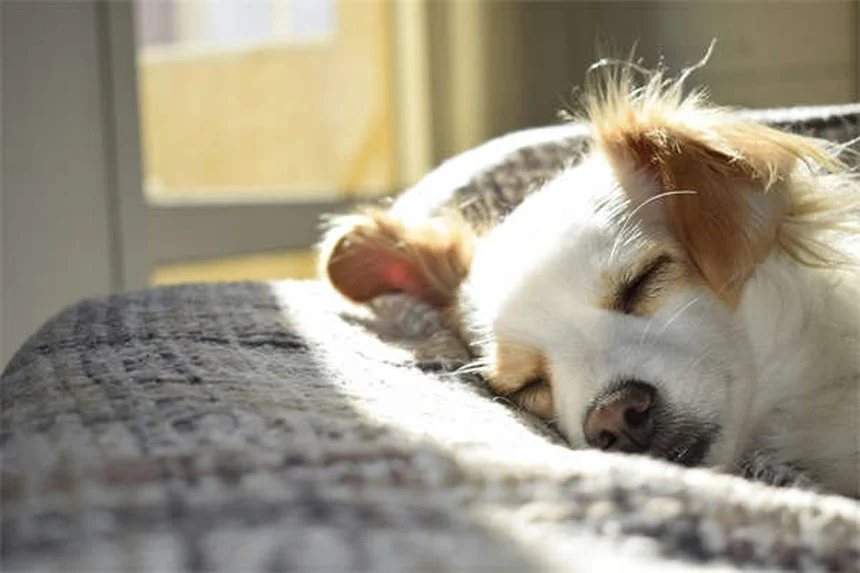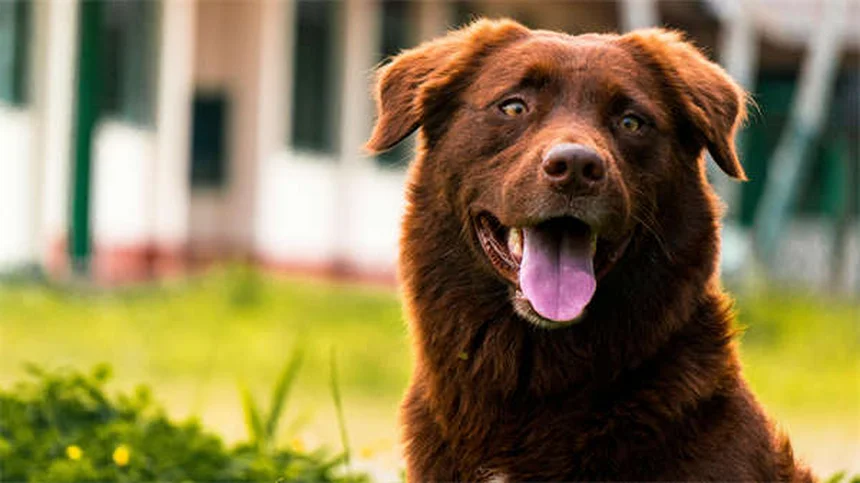What makes Lionhead rabbits so special? The answer is simple: these fluffy bundles of joy combine adorable looks with big personalities in a compact package! As someone who's worked with rabbits for years, I can tell you Lionheads are truly one-of-a-kind pets. Their signature manes (which come in single or double varieties) give them that royal appearance, but it's their playful, social nature that really steals hearts.
You'll quickly discover these aren't your average rabbits. Lionheads form strong bonds with their humans and thrive on interaction. But here's the thing - that gorgeous mane means they need more grooming than short-haired breeds. Don't worry though, we'll walk you through everything from proper brushing techniques to setting up the perfect bunny habitat. Whether you're considering adopting or already have a Lionhead hopping around your home, this guide will help you give your fluffy friend the best care possible!
E.g. :Senior Dog Care: 7 Essential Tips for Your Aging Canine Companion
- 1、Meet the Lionhead Rabbit: A Fluffy Bundle of Joy
- 2、Living with Your Lionhead: The Ultimate Guide
- 3、Keeping Your Lionhead Healthy and Happy
- 4、Grooming Your Fluffy Friend
- 5、Feeding Your Lionhead Like a Pro
- 6、Training and Bonding with Your Bunny
- 7、Final Thoughts on Lionhead Ownership
- 8、The Secret Language of Lionhead Rabbits
- 9、Lionhead Rabbit Myths Debunked
- 10、Creative Enrichment Ideas for Your Lionhead
- 11、Traveling With Your Lionhead Companion
- 12、The Unexpected Joys of Lionhead Parenthood
- 13、FAQs
Meet the Lionhead Rabbit: A Fluffy Bundle of Joy
What Makes Lionheads So Special?
Picture this: a tiny ball of fluff with a majestic mane that would make Simba jealous! That's your Lionhead rabbit - one of the cutest small breed bunnies around. These little furballs come in two fabulous varieties:
Single-maned Lionheads rock that youthful lion look when they're babies, but their mane tends to thin out as they grow up. It's like their version of a teenage phase!
Double-maned Lionheads? They keep their glorious fur coats for life, often sporting extra fluff around their back legs and sides. You can spot these showstoppers at birth by the distinctive V-mark on their backs.
From Europe to Your Living Room
These adorable creatures hopped across the pond from France and Belgium in the 1990s, and the American Rabbit Breeders Association gave them official recognition in 2013. Here's what you're getting with a Lionhead:
| Feature | Details |
|---|---|
| Size | 8-10 inches long |
| Weight | 2.5-3.75 pounds |
| Ears | 2-3.5 inches (perfect for listening to your secrets) |
| Lifespan | 7-9 years of companionship |
Living with Your Lionhead: The Ultimate Guide
 Photos provided by pixabay
Photos provided by pixabay
Personality Plus!
Ever met a rabbit that thinks it's a dog? That's your Lionhead! These little guys are:
- Super smart (they can learn tricks!)
- Energetic (bunny zoomies are real)
- Social butterflies (they'll bond with you like Velcro)
Did you know they actually do better with a bunny friend? It's true! While they'll adore you, nothing beats having a fellow fluffball to snuggle with when you're not around.
Home Sweet Home Setup
Your Lionhead might be small, but they need space to be their fabulous selves. Here's the scoop on bunny real estate:
Minimum cage size: 18x24 inches (but bigger is always better)
Must-have features: Solid floor (no wire bottoms - ouch!), room to stand up tall, and plenty of hidey holes
Pro tip: Add levels and tunnels for extra fun! Your bun will thank you with happy binkies (those crazy jumps rabbits do when they're excited).
Keeping Your Lionhead Healthy and Happy
Common Health Issues to Watch For
Now, let's talk about keeping your fluffy friend in tip-top shape. Did you know rabbits can't vomit? That's why their digestive health is so crucial!
Dental Drama: Those cute teeth never stop growing! Without proper wear, they can cause serious problems. Here's what to look for:
- Drooling (not the cute kind)
- Pawing at their face
- Swelling around the cheeks
The solution? Unlimited hay! It's like nature's toothbrush for bunnies.
 Photos provided by pixabay
Photos provided by pixabay
Personality Plus!
Ever seen your rabbit stop eating and moving? That's an emergency! GI stasis can be deadly if not treated quickly. Prevention is key:
Feed plenty of fiber (hello, Timothy hay!)
Keep stress levels low (yes, bunnies get stressed too)
Watch for changes in poop (weird but important)
Grooming Your Fluffy Friend
Brushing Basics
That gorgeous mane doesn't maintain itself! Here's your grooming game plan:
Regular season: Brush 2-3 times weekly
Molting season (spring/fall): Daily brushing sessions
Bonus: Grooming time is perfect bonding time! Your Lionhead will learn to love these pampering sessions.
Nail Care and More
Don't forget about those nails! Monthly trims keep everyone safe (including your furniture). While you're at it:
Check ears for gunk
Inspect skin for irritation
Look for any unusual lumps
Feeding Your Lionhead Like a Pro
 Photos provided by pixabay
Photos provided by pixabay
Personality Plus!
What's on the menu for your furry gourmet? Here's the breakdown:
Hay: Unlimited Timothy hay - they should eat their body weight daily!
Greens: 1 cup per 2 lbs of bunny (skip the iceberg - it's basically crunchy water)
Pellets: About 1/8 cup daily for adult Lionheads
Remember: Fresh water always! Bottles are cleaner than bowls.
Training and Bonding with Your Bunny
Litter Box Wins
Yes, you can litter train a rabbit! Lionheads are especially quick learners. Here's how:
Start with a low-sided box
Use paper-based litter (no clay!)
Put some of their poops in the box (they'll get the hint)
Fun Tricks to Teach
These smarty-pants can learn all sorts of things! Try these starter tricks:
Come when called (use their favorite treat)
Spin in circles (follow the treat!)
Stand up on command (aka "periscope")
Final Thoughts on Lionhead Ownership
Is a Lionhead Right for You?
Before you bring home that fluffy face, ask yourself:
Can I commit to daily interaction?
Am I ready for regular grooming sessions?
Do I have space for proper bunny housing?
If you answered yes, you're in for an amazing journey with one of the most charming small pets around!
Where to Find Your Perfect Lionhead
Always adopt responsibly! Check with:
Local rabbit rescues
ARBA-approved breeders
Rabbit-savvy veterinarians for referrals
Remember: A happy Lionhead means years of fluffy cuddles and hilarious antics. Ready to hop into bunny parenthood?
The Secret Language of Lionhead Rabbits
Understanding Bunny Body Language
Did you know your Lionhead is constantly communicating with you? These fluffy chatterboxes have a whole vocabulary of hops, nudges, and ear positions. When your bunny suddenly flops onto its side, that's not laziness - it means they feel completely safe and content with you!
Watch for those lightning-fast zoomies around the room followed by dramatic mid-air twists (called binkies). That's bunny for "I'm having the BEST day ever!" And if you hear teeth grinding? Soft purring means happiness, but loud grinding could signal pain. You'll become a bunny whisperer faster than you think!
What Those Ears Are Really Saying
Lionhead ears might be shorter than other breeds, but they're just as expressive. Here's your quick decoder:
| Ear Position | What It Means |
|---|---|
| Straight up and forward | "I'm super interested in what's happening!" |
| One up, one sideways | "I'm listening... but also kinda relaxed" |
| Flat back against head | "I'm scared or angry - give me space!" |
Ever notice your bunny suddenly freezes with ears perked? That's their natural prey instinct kicking in. They've probably heard something you can't even detect - maybe the neighbor's cat three blocks away!
Lionhead Rabbit Myths Debunked
"They're Just Cage Pets" - Think Again!
Would you keep a golden retriever in a crate 24/7? Of course not! Lionheads need at least 4 hours of supervised playtime outside their enclosure daily. These energetic fluffballs thrive when they can explore, dig (in approved areas!), and claim your entire living room as their kingdom.
Here's a fun fact that might surprise you: Many Lionhead owners successfully train their bunnies to use pet stairs and even sleep in bed with them! Just be prepared to wake up to a furry face sniffing your nose at dawn.
"Rabbits Don't Need Vet Care" - Dangerous Thinking!
How often do you take your car for maintenance? Your Lionhead needs regular check-ups too! Annual vet visits are absolutely essential, even if your bun seems perfectly healthy. Rabbits are masters at hiding illness - by the time they show symptoms, they might be critically ill.
Find a rabbit-savvy vet before emergencies happen. Regular nail trims, weight checks, and dental exams can add years to your fluffy friend's life. And yes, you should absolutely get them spayed/neutered - it prevents cancers and improves behavior dramatically!
Creative Enrichment Ideas for Your Lionhead
DIY Toys That'll Drive Them Wild
Who needs expensive pet store toys when you've got cardboard boxes and toilet paper tubes? Here's a surefire hit: Take an empty oatmeal container, cut some bunny-sized holes in it, and stuff it with hay and a few treats. Watch as your Lionhead becomes the most determined little archaeologist!
Another winner? Make a "digging box" with child-safe shredded paper (avoid ink) and hide their favorite veggies underneath. It satisfies their natural digging instincts without destroying your carpet. Pro tip: Rotate toys weekly to prevent boredom - a stimulated bunny is a well-behaved bunny!
Training Games That Strengthen Your Bond
Did you know you can teach your Lionhead to play basketball? Okay, maybe not NBA-level, but they can definitely learn to push a small ball into a makeshift hoop for treats! Start with simple targeting - have them touch their nose to a stick for a reward, then gradually build up to more complex tricks.
Agility training isn't just for dogs! Set up a mini obstacle course with tunnels, low jumps, and weave poles. Your Lionhead will love showing off their athleticism, and you'll be amazed at how quickly they learn. Always keep sessions short (5-10 minutes) and end on a positive note with their favorite treat!
Traveling With Your Lionhead Companion
Road Trip Ready: Bunny Travel Essentials
Planning a vacation? With proper preparation, your Lionhead can be the perfect road trip buddy! First rule: Never leave them in a hot car - rabbits can overheat frighteningly fast. Always bring:
- A sturdy carrier (practice short trips first)
- Frozen water bottles wrapped in towels for cooling
- Their regular food and favorite treats
- A small piece of used bedding for familiar smells
Call ahead to pet-friendly hotels, and consider a portable exercise pen for hotel room playtime. Some Lionheads even enjoy harness training for safe outdoor adventures - just go slow and use a proper rabbit harness, never a collar!
Finding Bunny Care When You Can't Travel Together
What if you need to take a trip where your Lionhead can't join? Finding quality care is crucial - these sensitive creatures can literally die from stress if left with unprepared caretakers. Start by asking your vet for boarding recommendations or experienced pet sitters.
Prepare detailed instructions covering their routine, emergency contacts, and vet information. Better yet, have the sitter visit several times before your trip so your bunny recognizes them. Leave your phone number AND the number of a local rabbit-savvy friend who can assist if you're unreachable. Your Lionhead's safety is worth the extra planning!
The Unexpected Joys of Lionhead Parenthood
How Your Bunny Will Change Your Life
Ever had a bad day at work, then come home to a tiny creature doing happy jumps just because you walked in the door? That's the magic of Lionhead ownership! These little comedians have a way of turning ordinary moments into pure joy.
You'll develop a sixth sense for the sound of chewing (is that a carrot or your favorite shoes?). Your camera roll will overflow with bunny portraits. And you'll find yourself having full conversations with this furry family member who somehow understands every word. It's not just pet ownership - it's an unforgettable friendship!
Building a Bunny-Proof (But Still Stylish) Home
Who says pet-friendly can't be chic? Protecting your belongings from curious bunny teeth doesn't mean living in a fortress of plastic. Try these clever solutions:
Use decorative wicker baskets to hide cords, or run them through PVC piping painted to match your walls. Swap out toxic houseplants for bunny-safe spider plants in hanging baskets. And those baseboards? A thin strip of clear plexiglass along the bottom protects them while being practically invisible.
The secret? Give your Lionhead approved chewing alternatives in every room - apple wood sticks, seagrass mats, and untreated willow balls will save your furniture while keeping those constantly growing teeth healthy. Your home can be both beautiful and bunny-happy!
E.g. :How to Care for a Pet Lionhead Rabbit
FAQs
Q: How much grooming do Lionhead rabbits need?
A: Lionhead rabbits require regular grooming to keep their magnificent manes in top condition. You'll want to brush your bunny 2-3 times weekly normally, but during shedding seasons (spring and fall), daily brushing is a must. Here's why this matters: all that loose hair can cause serious digestive issues if your rabbit ingests too much while grooming themselves. I recommend using a soft slicker brush and being extra gentle around their delicate skin. Pro tip: Make grooming sessions fun with treats and praise - your Lionhead will learn to enjoy this bonding time!
Q: Are Lionhead rabbits good pets for first-time owners?
A: While Lionheads make wonderful companions, they might not be the easiest starter rabbit. Their grooming needs and social requirements make them slightly more demanding than some other breeds. However, if you're willing to put in the time (about 30 minutes daily for care and interaction), they can be incredibly rewarding pets. From my experience, their intelligence and affectionate nature often outweigh the extra maintenance. Just be prepared for regular brushing sessions and consider adopting an adult if you're new to rabbits - babies can be extra energetic!
Q: What's the ideal diet for a Lionhead rabbit?
A: The perfect Lionhead menu focuses on high-fiber foods to support their digestive health. Your bunny should have unlimited access to fresh Timothy hay - they need to eat about their body weight in hay daily! Supplement with 1 cup of dark leafy greens per 2 pounds of body weight (skip the iceberg lettuce - it's basically just water). For pellets, stick to about 1/8 cup daily for an adult Lionhead. And remember: fresh water always! I prefer water bottles over bowls to keep things cleaner. Treats should be given sparingly - small pieces of carrot or apple make great occasional rewards.
Q: How can I tell if my Lionhead rabbit is sick?
A: Rabbits are masters at hiding illness, so you'll need to be observant. Warning signs include changes in eating habits, unusual stool, lethargy, or excessive teeth grinding (a sign of pain). With Lionheads specifically, watch for matted fur or skin irritation under their mane, as well as any discharge around eyes or nose. Dental issues are common in this breed, so decreased appetite or drooling warrants an immediate vet visit. My best advice? Get to know your bunny's normal behavior - that way you'll spot problems early when they're easiest to treat.
Q: Can Lionhead rabbits live with other pets?
A: Lionheads can coexist peacefully with other animals, but introductions must be supervised carefully. They often do best with another rabbit friend (preferably fixed to prevent hormonal aggression). When it comes to cats or dogs, it depends entirely on the individual animals' temperaments. I've seen successful interspecies friendships, but always keep safety in mind - rabbits are prey animals and can literally be scared to death. If you have other pets, provide your Lionhead with secure hiding spots and never leave them unsupervised together. Slow, positive introductions are key to building trust between species.


